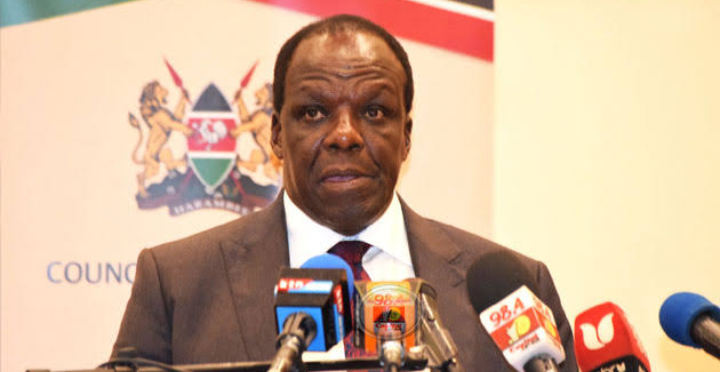Cooperatives Cabinet Secretary Wycliffe Oparanya has exposed financial mismanagement at the Kenya Union of Savings and Credit Co-operatives (KUSCCO), revealing losses exceeding Sh12 billion.
This revelation has caused widespread alarm, raising concerns about the cooperative sector’s governance and the potential impacts on millions of Kenyans who rely on SACCOs for savings and loans.
The staggering losses stem from years of irregularities, including unauthorized cash withdrawals, fraudulent transactions, and unsecured loans issued to senior officials without proper oversight.
A forensic audit revealed that over Sh5.5 billion was irregularly withdrawn between 2013 and 2024, with significant amounts tied to failed projects, such as the Kitengela housing scheme, which cost an estimated Sh18 billion.
This project was intended to deliver affordable housing but instead became a symbol of corruption, with minimal tangible results for SACCO members.
Additional investigations uncovered kickbacks to SACCO officials who facilitated deposits into KUSCCO accounts.
For instance, Sh12 million was reportedly paid out as commissions in just one deposit scheme, further compromising the integrity of the institution.
Former leaders, including George Ototo and George Magutu, were found to have played pivotal roles in these financial discrepancies. Magutu allegedly influenced large deposits from affiliate SACCOs like New Fortis, whose members lost Sh800 million.
Despite the financial turmoil, KUSCCO’s leadership reportedly continued declaring bonuses and dividends, a move that defied logic given the union’s dire financial state.
The government has since dismissed the entire board, replacing it with an interim team tasked with steering KUSCCO back to financial stability and restoring confidence in the sector.
However, political interference complicates the reform process, as some implicated officials, including Ototo, are lobbying for reinstatement by capitalizing on shifting political alliances.
This scandal has drawn attention to systemic weaknesses in Kenya’s cooperative framework.
The government has vowed to strengthen regulatory oversight through the Ministry of Cooperatives, ensuring accountability in the management of member funds.
The Cooperative Alliance of Kenya has also called for stricter compliance measures to rebuild trust in the sector.
The fallout from this crisis serves as a wake-up call for Kenya’s cooperative movement. Stakeholders are urging swift action to recover lost funds and prosecute those responsible.
Only through transparent reforms and stringent oversight can KUSCCO and the broader SACCO system regain their credibility and protect members’ hard-earned savings.





















Add Comment